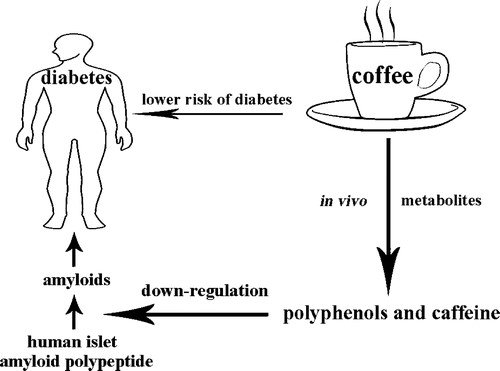Diabetes mellitus is a serious global health concern. It dramatically increases the risks of heart problems like stroke, chest pain and cardiac arrest. In 2021, 537 million adults (aged between 20 and 79) were living with diabetes and the number is likely to reach 643 million by 2030 and 783 million 2045. Being overweight, insulin resistance and a sedentary lifestyle are major contributors to this chronic disease. A combination of genetics increases your risks too. The prevalence of Type 2 is quite high in the US. Studies have found that approximately 90-95%, that is 1 in 10 is living with this condition.
Improper management can lead to vision loss, skin complications and nerve damage. So, it is vital to make sure that the blood sugar levels do not rise above 180ml/dl or higher. Otherwise, you might also end up with frequent washroom breaks and a constant feeling of thirst. The good news is that four or more cups of coffee daily can lower the chances of type 2 diabetes by a whopping 50%. This is a simple activity but works wonders.
How Does Coffee Help?
Organic coffee comes with a plethora of benefits. It is rich in antioxidants and vitamins and is free of synthetic fertilizers and pesticides. In short, coffee consumption is done in the most responsible possible way with green beans. The ‘misfolding’ of hIAPP or the human islet amyloid polypeptide is linked with diabetes. Coffee is packed with caffeine, caffeic acid or CA and chlorogenic acid or CGA. These can stop the accumulation of the hIAPP protein and reduce the chances of type 2 diabetes.

Image Source: https://phys.org/news/2012-01-coffee-diabetes.html
Caffeine has a significant impact on blood glucose and insulin. Anyone who metabolized it quicker has lower sugar levels than those who metabolized it slower. Tolerance of coffee from long-term consumption also lessen the chances of prediabetes and diabetes.
Decaffeinated and regular coffee is rich in antioxidants like chlorogenic acid. It can improve the body’s sensitivity to insulin and reduce the risk of type 2. A study conducted on postmenstrual women found that those who drank 6 cups had a 33% lower risk. This is in comparison to non-drinkers. Coffee also contains polyphenols which are molecules with antioxidants. These can prevent inflammatory diseases like type 2 diabetes. Magnesium, an active ingredient of coffee, along with chromium is linked with lower rates of this condition.
3 Ways to Prepare your Coffee the Right Way
It is crucial to avoid the sugar rush. Consider unsweetened milk like coconut or almond-based ones. Vanilla and cinnamon are great zero carb options for delicious taste. Here are a few ways to make your coffee healthier than ever:
- Avoid low-fat artificial creamer that is highly processed and switch to grass-fed cow milk rich in Vitamin K. These are whole and natural and automatically a better option to reduce the possibility of type 2 diabetes.
- Paper filters remove oily components like diterpenes. This helps brew a healthy cup with fine flavor and rich color.
- Consider adding cocoa powder. It can improve insulin sensitivity and blood sugar control that can further reduce the risks of inflammation.
It is also necessary to understand a few risks and warnings of having coffee. Habitual consumption must be done in the right way to reap the benefits.
Brewing a Perfect Cup

A good amount to begin with is 4 cups of coffee a day, which is about 400 milligrams. Drinking too much coffee is also not good, as it can cause insomnia, high blood pressure, digestive problems, or general restlessness. Children should avoid coffee.
Avoid adding syrups and sweeteners to your cup of joe. These might heighten the taste but increase blood sugar to dangerous levels. You must also stay away from thick milky coffees since these are high in carbs and calories.
Coffee alone cannot cut down the risk of diabetes. It’s important to maintain a regular exercise schedule, stay hydrated and adjust your treatment plan as and when needed. Keep a check on your blood sugar level. Try not to be extra stressed and manage your oral hygiene. All of these, along with a doctor-recommended meal plan, can keep you safe from the consequences of type 2 diabetes in the long run.

